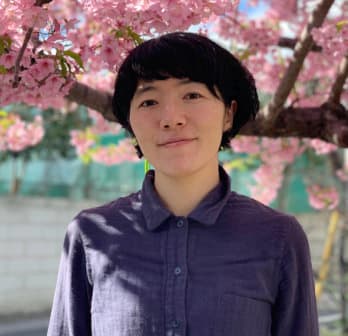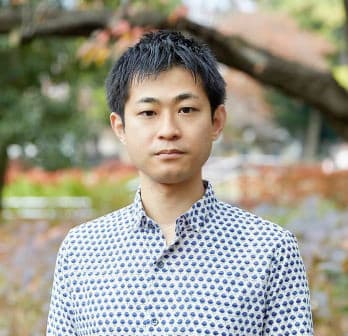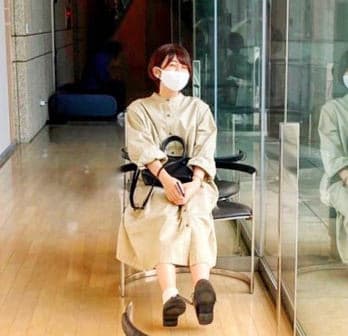Presently the scene shifted again and Naoki found himself back in the craftsman’s workshop. In his hand, the time arrow radiated dazzling light. Still dazed, he looked around. Beside him were Yukako and Kazuto, looking like they had just woken up.
“So you experienced it, yes? Your father’s time.” The craftsman broke into an impish grin. “Sorry, I shouldn’t. It’s the looks on your faces: you look so much like your father did, when he got the time arrow from your grandfather.”
Feeling like complete idiots, the three of them grinned foolishly back at him.
Naoki said, “I feel like I’m still in a dream; so these are real time arrows ... We’ll make sure our father gets them.”
They thanked the craftsman and took their leave.
In the car on the way back, all three had a lot to say. Some of the re-lived experiences they had in common, others they didn’t.
Yukako told the others about her experience in the beautiful mountain village of Yuki. “Remember? Dad took us there, ages ago.”
That brought it back for Naoki. Visiting the farm in Yuki; the gelato there.
Following the lively discussion of the farm, Yukako said, “But after that we went to a cafe in an antique house, to the hot springs, and to see the fireflies that night, as well ... Dad packed way too much in. When I re-experienced it just now, it was so tiring I completely zoned out before the end.”
The car rocked with laughter.
“I saw the New Year’s oysters,” Kazuto said. “Remember?”
The other two exclaimed, “New Year’s oysters!” “I remember!”
Their family custom was to steam oysters in the shell in their garden on the New Year’s holiday. They used to drive to a harbour-side oyster hut in the morning to buy a five-gallon can; the can was used to cook them in, kankan-yaki style.
“They were so good, it was such a feast...” Kazuto said dreamily. “But you know what, honestly it was too much—did you ever get sick of them and feel like you’d had enough?”
The other two echoed, “Oh, I know what you mean!” “Yup, totally!”
“Towards the end, it was kinda like we kept on eating because we didn’t want to hurt Dad’s feelings,” Kazuto said.
Naoki and Yukako were nodding along and burst out laughing again.
The conversation went off on tangents, circled round and repeated itself over and over. It went on and on without a break, rocked by shared belly laughter at intervals, as they returned the car and headed back to the rest home where their father awaited them.
On the tram, Yukako happened to say, “Oh, by the way, speaking of trams; Dad usually drove, but for some reason whenever he was going someplace in the city of Hiroshima, he’d only ever take the tram.”
Naoki replied, “Really? Wasn’t that ’cause he’d be drinking beer at the ballpark?”
“No, it wasn’t just when he went to baseball games,” Yukako said. “He always took the tram whenever he went shopping in the city too.”
Then Kazuto said, “I know why.”
“Huh?” Naoki and Yukako looked at him in surprise.
Kazuto continued. “Can’t remember when this was ... but I thought it was weird and asked him about it, and he spilled. He’s scared of the trams.”
“What?” the others cried.
“’Cause the tram tracks run directly on the city streets, without any separation between them, you know?” Kazuto explained. “He said if he took the car he’d be on edge from near misses with trams, so he didn’t want to drive in the city.”
“No way,” Naoki protested, “I mean, I’m sure some people are like that, but ... surely not Dad!”
Yukako burst out laughing. “Come on, aren’t those trams slower than bicycles?”
As she said, the trams were notoriously slow—so slow that locals chose other transport options if time was a priority. Still, the fares were cheap, and the trams were reliable, able to soldier on even in heavy rain.
Whenever Naoki saw a tram, he felt that he was back in his home town; he had a deep affection for them. But he found it highly unlikely that his stern father was nervous of those cute, slow-running trams, and it brought a broad smile to his face. “I might ask Dad for the full story later on.”
“Good idea, that should be interesting,” Yukako snickered.
Kazuto was alarmed by their glee. “Hey, don’t let on that I told you that!”
With its three lively passengers on board, the tram ran with an unhurried clickety-clack through the twilight city of Hiroshima.
It was a while before Naoki brought up the subject he wanted to discuss, in a leisurely manner. “By the way, there’s something I want to talk about—”
*
As soon as Tetsuo saw his three children come into his room, he said, “Oh, you’re back. I know you’re all busy; sorry to put you out.”
Naoki and the others kept the tale of their journey short and quickly took out the paulownia boxes. They each opened the lid of the box they held to show Tetsuo what was inside.
“Ah, as always, that workshop has done a great job.” Tetsuo gazed appreciatively at the three shining time arrows.
Naoki picked that moment to speak. “Dad, I want to apologize...”
Tetsuo tore his gaze away from the time arrows to look at Naoki. “What’s this, all of a sudden?”
“Maybe it’s too late for this, but I’m ashamed at how little I understood...”
“About what?”
“About you, Dad.”
Yukako and Kazuto followed Naoki’s lead. “All I thought about was myself...” “Me too...”
Baffled, Tetsuo stiffly tilted his head to the side. “If you’ve got time to spare for chit-chat about things I don’t understand, get on with it and pass me those arrows. We still need to discuss your inheritance, as I promised. I’d hate to see you get into a dispute after I’m gone—”
Naoki cut in. “Dad, there’s something more important we need to talk about...”
“Oh?”
“The three of us discussed it earlier—we believe you asked us to go get the time arrows because you wanted to get this lesson through to us.”
At Naoki’s words, Yukako and Kazuto took out their time arrows. Naoki took all three arrows, bundled them together and showed them to Tetsuo. “The Three Arrows of Mōri Motonari, isn’t that right?”
He was referring to a story they all knew well; it was not a matter of historical fact, but an anecdote about the sixteenth-century warlord Mōri Motonari.
In his last days, Motonari summoned his three sons. He handed them each a single arrow and asked them to break it. Once the arrows had been easily broken, next Motonari told his sons to break a bundle of three arrows in the same way. They were not able to do so. With this simple truth, Motonari emphasized the importance of the three of them standing united together.
That is the story of the Three Arrows of Mōri Motonari.
Yukako said, “We walked right into your trap, Dad.”
Kazuto was smiling wryly. “We know the story so well, but we never guessed we’d end up in the same situation.”
Tetsuo merely listened in silence, neither confirming nor denying.
Naoki addressed him. “But we had to admit how infuriating it was that you played us so neatly. That we couldn’t let you get away with it, and we wouldn’t be able to rest until we got one over on you. When we were discussing it we noticed a flaw in Motonari’s argument. It’s true that arrows are less likely to break when they’re bundled together, but an archer can’t shoot them in a bundle. Even if they did manage to shoot them, the bundle would be so much slower, they’d be no good as arrows.”
At these words, Tetsuo’s impassive expression flickered a little. The slight change in his demeanour did not escape his children’s notice—the three smirked at each other.
After a beat, Yukako said with a straight face, “Anyway, we enjoyed picking holes in it ... but now we think it’s actually better that way.”
Tetsuo looked at them all. “What do you mean?”
Kazuto answered. “This might be wishful thinking ... but what if we three could bundle together, so that the days wouldn’t fly by like an arrow for us. In other words, we’d like the days to pass more slowly.”
Naoki took up where he’d left off. “So we can make the most of the time we have left with you, Dad ... That’s the conclusion we came to—that we’d like the days to pass as slowly as a tram. Oh wait, aren’t you scared of trams?”
Yukako couldn’t hold back her snort of laughter. Kazuto glared at the other two, and Tetsuo looked mystified.
“Well, anyway,” Naoki said humbly. “We don’t know how much time you have left, and it may be a little late for this, but ... Dad, could you spend as much time as you can with us from here on in? Enough for us all to get on each other’s nerves and wish it would go faster. Enough for someone to complain it moves like a tram, not an arrow.”
3 / 3





